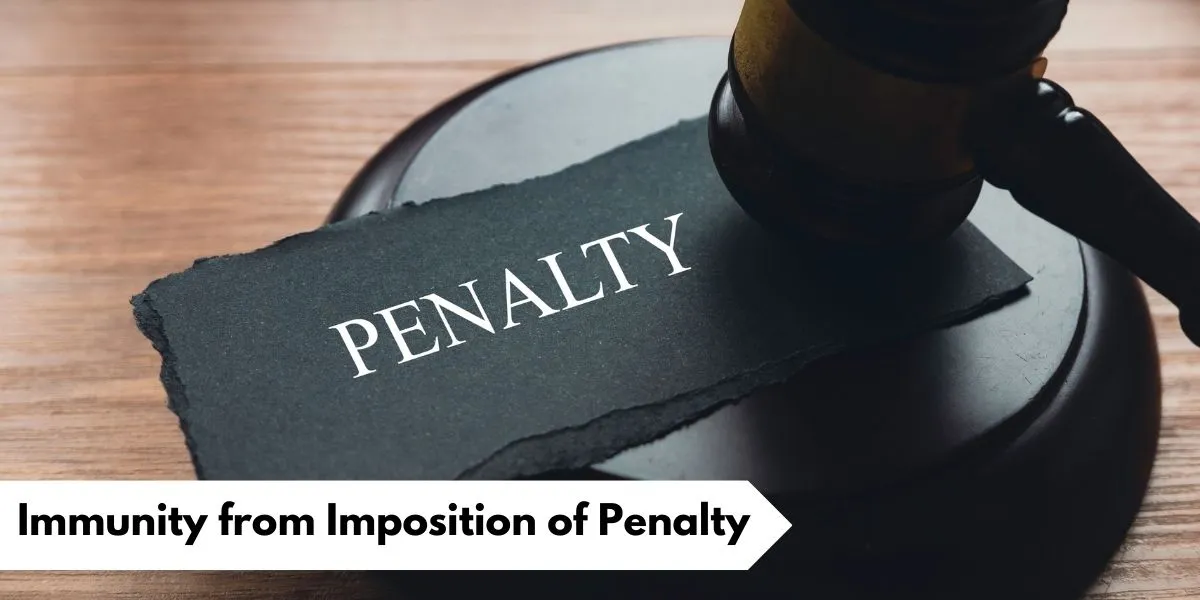Immunity from Imposition of Penalty Under Income Tax Section 270AA

There’s a popular saying, ‘If you think compliance is expensive, try non-compliance’. This is very apt as the Income Tax Act, 1961 lays down explicit provisions regarding levy of penalty in case the assessee fails to comply with any of the provisions of the income tax law. However, in certain cases, the assessee can avail of immunity from imposition of penalty under the income tax law. Let’s understand what are the penal provisions and how you can claim immunity from imposition of penalty under the income tax law.
Penalty Provisions Under the Income Tax Law
As per Section 270A of the Income Tax Act, 1961, the Assessing Officer (AO), Joint Commissioner (Appeals), Principal Commissioner or the Commissioner may direct imposition of penalty in case any person under-reports his income. The section discusses what should be constituted as under-reported income and how it should be calculated. The penalty on under-reported income should be equal to 50% of the tax payable on under-reported income. However, if the under-reporting is as a consequence of mis-reporting, then the penalty should be 200% of the amount of tax payable on the under-reported income.
Immunity from Penalty
Section 270AA of income tax governs the provisions relating to immunity from the imposition of penalty under the income tax law. The assessee can make an application to the assessing officer to avail of immunity from imposition of penalty in income tax under the following circumstances:
- In case of imposition of penalty under Section 270A
- In case of initiation of proceedings under Section 276C (willful attempt to evade tax)
- In case of initiation of proceedings under Section 276CC (failure to furnish return of income)
The assessee needs to fulfil the following conditions for immunity from imposition of penalty:
- The assessee has paid the tax and interest as per the assessment or reassessment order under section 143(3) or 147 within the period specified under the notice of demand
- No appeal against the above order has been made by the assessee
The assessee needs to file the application for immunity from imposition of penalty within 1 month from the end of the month in which the above order of assessment or reassessment has been received. The AO shall grant immunity after the assessee satisfies the above conditions and the period of filing appeal as specified under section 249(2)(b) has expired. The assessing officer shall pass the order accepting or rejecting the application within 1 month from the end of the month in which the application is received. However, the application shall not be rejected unless the assessee has been provided an opportunity of being heard. Further, once an order accepting the application has been passed by the AO, then no appeal under section 246 or 246A or an application for revision under section 264 shall be admissible against the order of assessment or reassessment.
Following were the complete details relating to immunity from imposition of penalty under income tax law. In case you need any assistance in relation to the income tax proceedings, feel free to contact the ASC Group.

Leave a Reply